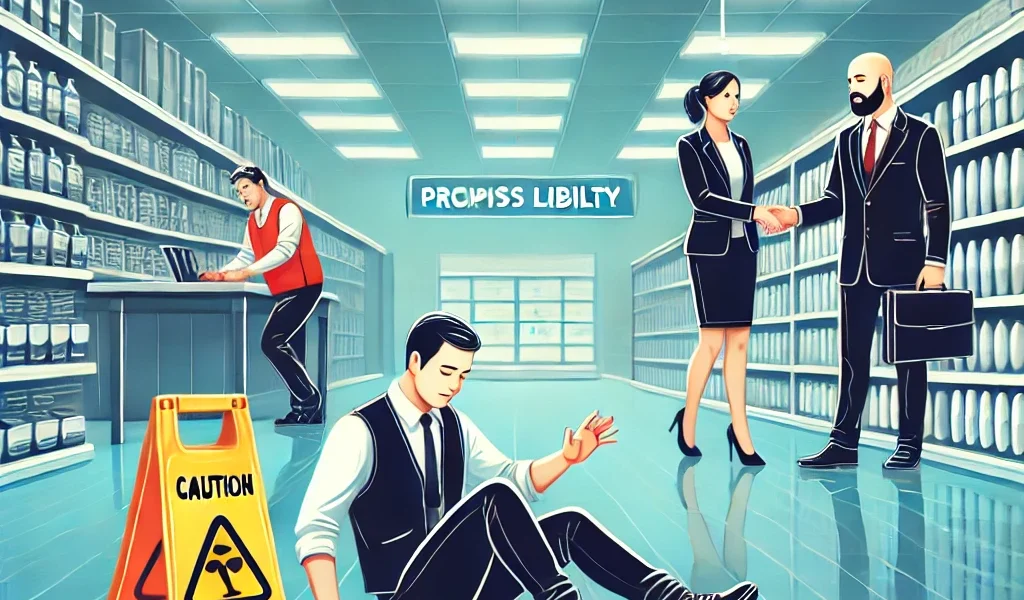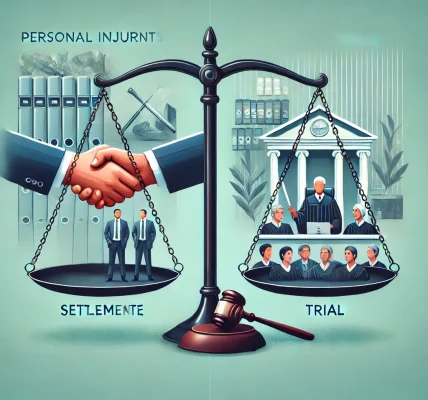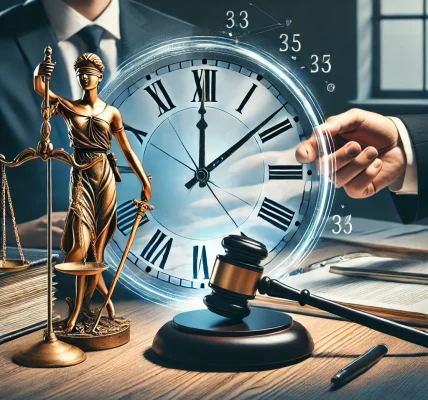Introduction
Filing a personal injury claim against a government entity is significantly different from filing a claim against a private individual or business. Government entities—such as city, state, or federal agencies—often have special legal protections that make the claims process more complex and time-sensitive. This guide will help you understand your rights, the legal process, and key factors to consider when pursuing a personal injury claim against a government entity.
Can You Sue a Government Entity for Personal Injury?
The general principle of sovereign immunity historically protected government entities from lawsuits. However, laws like the Federal Tort Claims Act (FTCA) and state-specific Tort Claims Acts allow individuals to sue the government under certain conditions. These laws set forth the rules for holding government agencies accountable for negligence.
Common Personal Injury Cases Involving Government Entities
Government entities can be liable for personal injury claims in various scenarios, including:
- Slip and Fall Accidents – Uneven sidewalks, unmarked hazards in public buildings, or poorly maintained government properties.
- Car Accidents Involving Government Vehicles – Accidents caused by police cars, fire trucks, ambulances, school buses, or other government-operated vehicles.
- Public Transportation Accidents – Injuries from bus, subway, or train accidents operated by government-run transit systems.
- Negligent Road Maintenance – Poorly maintained roads, potholes, missing traffic signs, or malfunctioning traffic lights.
- School or Public Park Injuries – Negligence in schools, playgrounds, or recreational facilities owned by government agencies.
- Medical Malpractice in Public Hospitals – Errors committed by doctors or healthcare providers employed by government-funded hospitals or clinics.
Steps to File a Personal Injury Claim Against a Government Entity
Because suing a government entity differs from private claims, follow these specific steps:
1. Determine Whether the Government Is Liable
Before filing a claim, you must establish that the government entity was negligent and that the negligence directly caused your injury.
2. Identify the Responsible Government Entity
Your claim must be filed against the correct government agency responsible for the accident. For example:
- If injured in a city park, the municipal government is responsible.
- If a federal employee caused a car accident, you may need to file under the FTCA.
3. Comply with the Notice of Claim Requirement
Unlike personal injury claims against private parties, most government entities require you to file a Notice of Claim before pursuing a lawsuit. This notice serves as an official warning to the government that you intend to sue.
- Deadlines vary but are often 30 to 180 days from the date of injury.
- The notice must include details of the injury, how it happened, damages claimed, and contact information.
- Failing to submit the notice within the required timeframe can result in losing your right to sue.
4. Wait for the Government’s Response
After submitting your claim, the government entity typically has a specific period (often 60 to 90 days) to investigate and respond. They may:
- Accept the claim and offer a settlement.
- Deny the claim, allowing you to proceed with a lawsuit.
- Ignore the claim, in which case you may file a lawsuit after the response period expires.
5. File a Lawsuit If Necessary
If the government denies your claim or offers an inadequate settlement, you may proceed with a lawsuit. However, strict procedural rules apply, and hiring an experienced personal injury attorney is highly recommended.
Challenges of Filing a Personal Injury Claim Against the Government
- Shorter Deadlines – You must act quickly due to strict filing deadlines.
- Government Immunity Protections – Certain actions or employees may be immune from lawsuits.
- Lower Compensation Limits – Some government entities impose limits on how much you can recover.
- More Bureaucracy – The process is often more complicated than suing a private entity.
Compensation You Can Recover
If successful, you may be eligible for:
- Medical expenses (past and future treatment costs)
- Lost wages and loss of earning capacity
- Pain and suffering
- Property damage (if applicable)
- Wrongful death damages (if filing on behalf of a deceased loved one)
Conclusion
Filing a personal injury claim against a government entity is more challenging than suing a private party, but it is possible with the right legal approach. Understanding the notice requirements, strict deadlines, and legal exceptions is crucial to maximizing your chances of success. Consulting with an experienced personal injury attorney can help ensure your rights are protected and increase the likelihood of receiving fair compensation.




